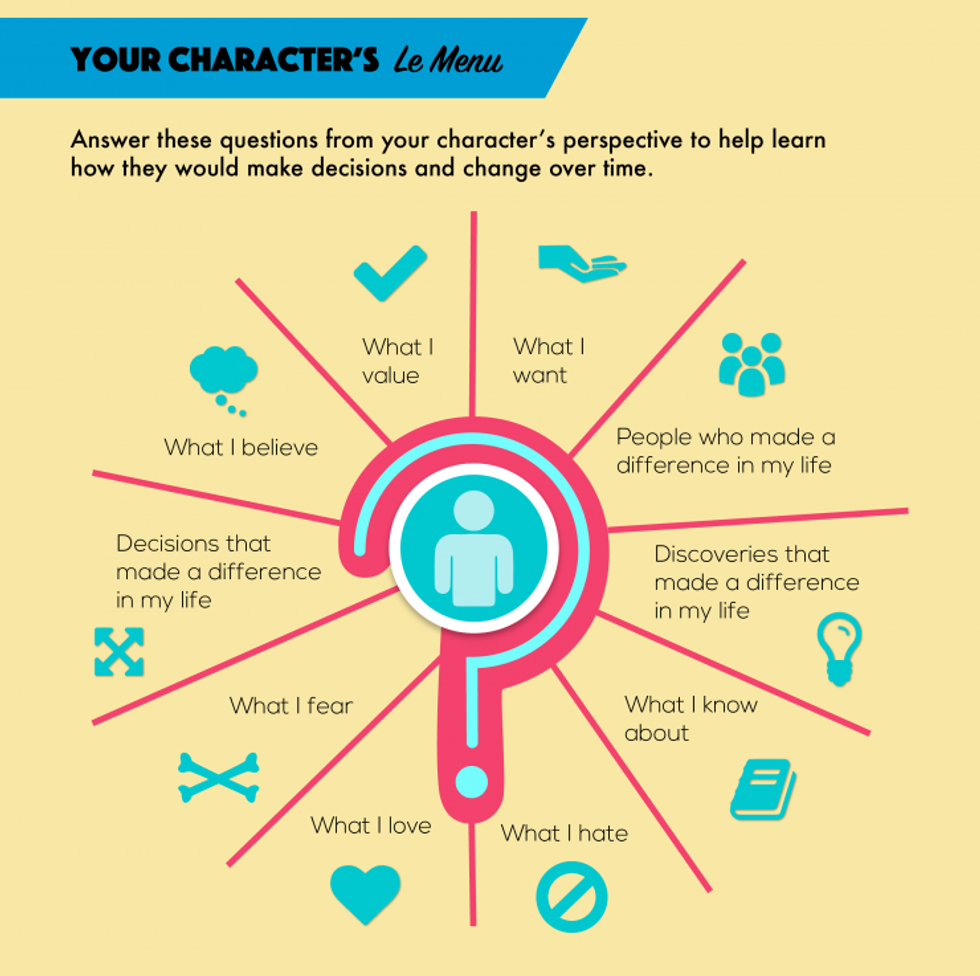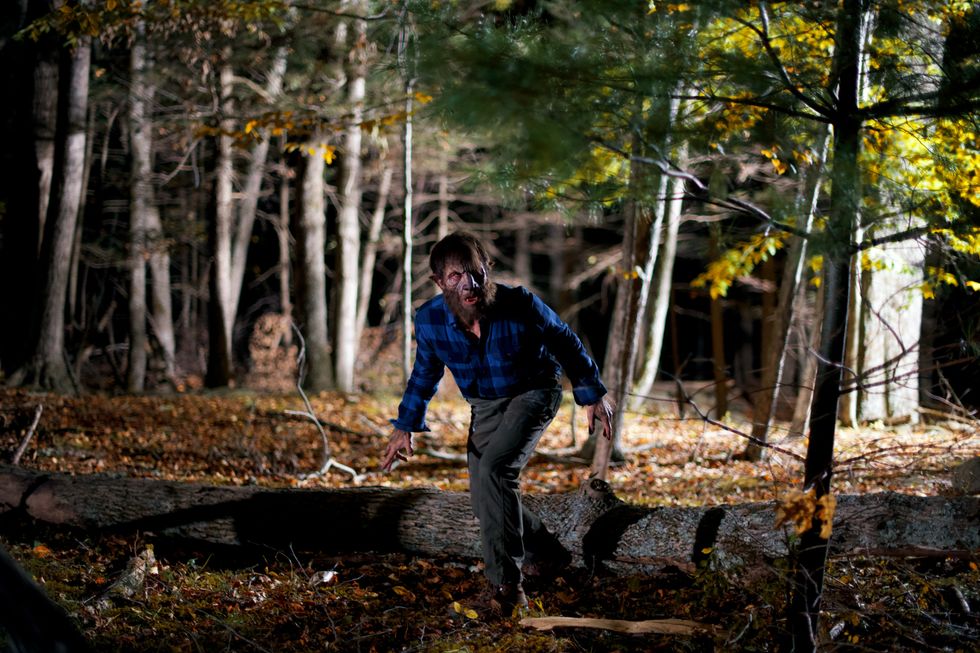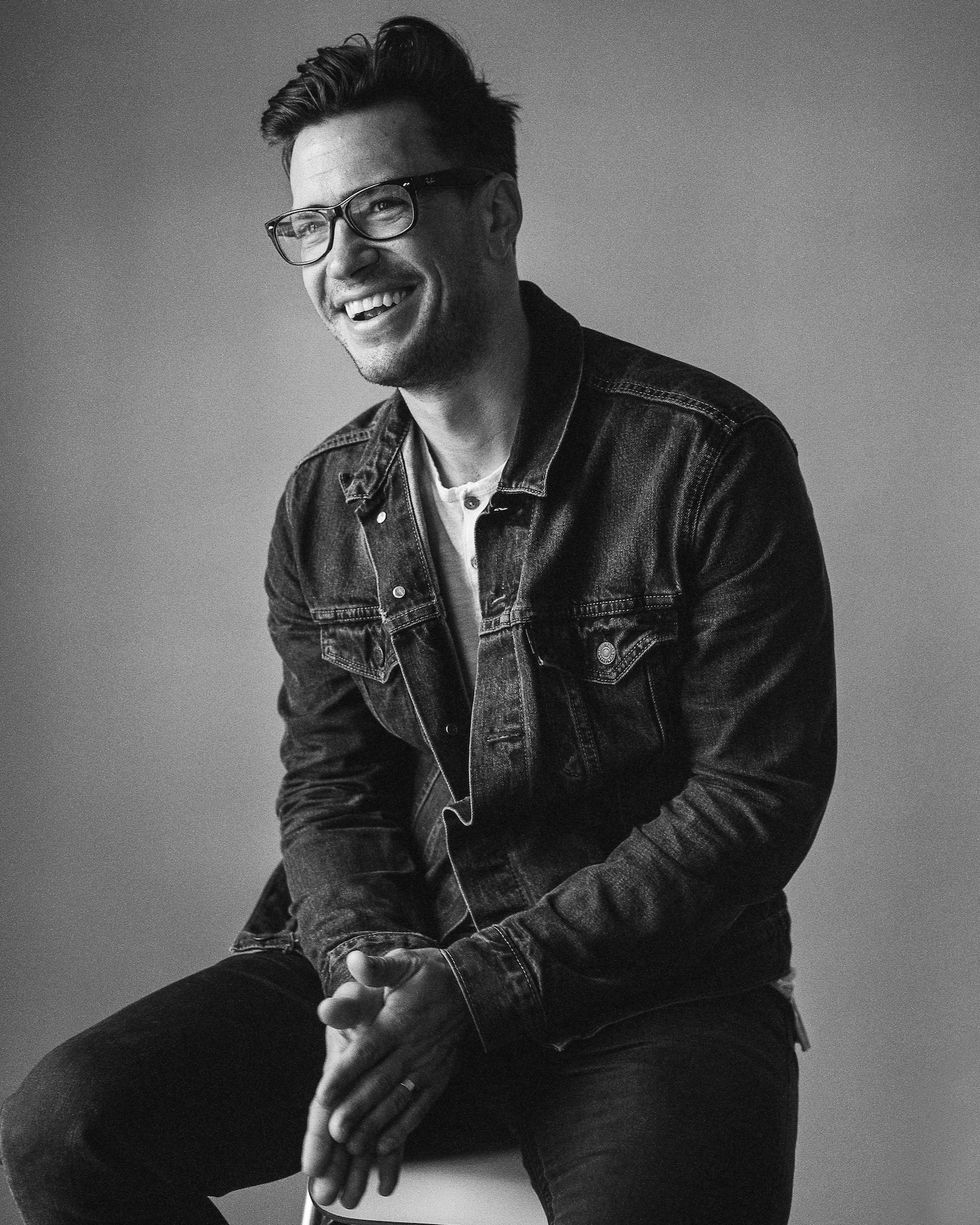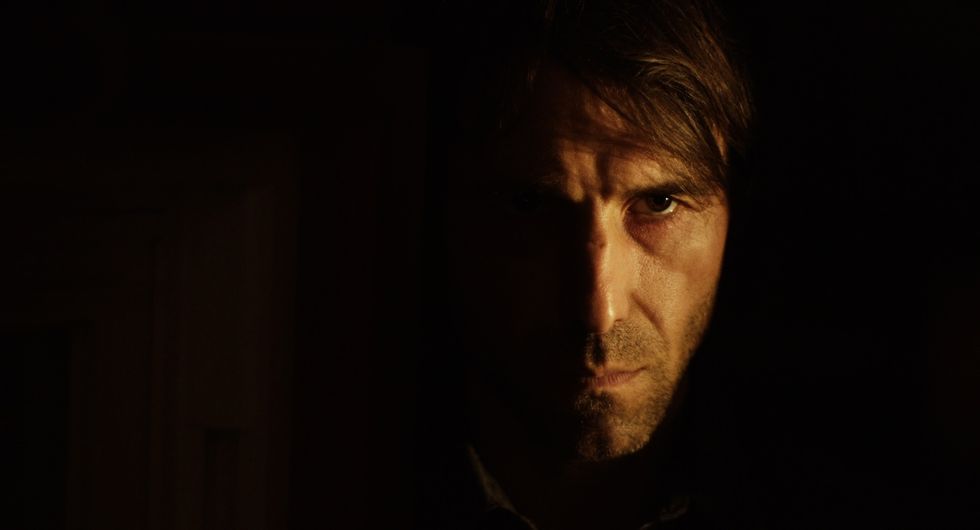Collin explains, “Blue moonlight feels a bit hyper real to me and even though we were making a werewolf movie, a lot of our approach lighting and camera wise we wanted to come from a place of realism.” They landed on a more naturalistic, silvery vibe explaining, “We both felt that held a sense of realism of what a full moon actually feels like.”
To achieve this look, Collin used a mixture of different LED units, mainly a few different sizes of Arri Skypanels among other things.
We spoke with Collin below about everything from Blackout to his desire to work on a neo-noire crime drama in the below interview.
Blackout - Official Movie Trailer (2024)www.youtube.com
No Film School: Can you tell us some info about yourself. How did you first get into cinematography? When did you know you wanted to make a career of this?
Collin Brazie: I grew up in Dayton, Ohio—loving and going to a lot of films. I suppose I initially started getting into films and cameras in high school—making dumb videos with friends and electing to make video projects for class assignments in lieu of writing papers. In college I started making actual narrative and experimental short films with friends and classmates, shooting 16mm black and white film while also getting introduced to some higher end video/digital cameras.
I think I started getting into cinematography around that time because I began falling in love with composition and being behind the camera. Figuring out lenses and camera placement was such a fun experiment. But my friends and I had no real idea what we were doing lighting wise yet. When I decided to get my MFA at Chapman University I applied to their cinematography program—probably because the lighting and exposure was the worst part of all my early student short films. The whole idea of exposure and getting the film developed was such a mystery at the time.
I think I knew I wanted to do this when I was around 17 or 18 years old. But it wasn’t until I was really studying and shooting that the idea of having a career seemed realistic. Growing up in Ohio and not knowing a single person in the industry made it seem like such a pipe dream.
NFS: What intrigued you most about the Blackout script?
Brazie: When Larry (Fessenden) sent me over the script I was very excited to read it. One of the first things that stood out to me were the challenges the film would bring—shooting night exteriors, out in the woods, open fields - things of that nature. I knew the budget wouldn’t be large, but I knew the ambition of the film would be big. That’s exciting as a cinematographer and a filmmaker. I really enjoy the horror genre - so the visual possibilities also had my gears turning.
When I finished the script—one of the things that really stood out to me was the humanity of the characters. Even the smallest characters are fleshed out and have an authenticity to them. That’s what is great about a script from Larry—he uses genre elements to really dig into something that is troubling society. As an icon of the indie horror world, I was thrilled to work alongside him. Plus, it’s a werewolf picture, how could I not be excited about that?
 'Blackout'Bahram Foroughi
'Blackout'Bahram Foroughi
NFS: What sort of conversations did you and director Larry Fessenden have before filming commenced about the look of the film?
Brazie: Larry and I had a nice amount of prep time before the film commenced, which is also crucial when you’re shooting a low budget film. I always try to be as prepared as possible, so that you’re making the most of your time and not wasting precious minutes on set discussing a plan for a scene. I feel that by being overly prepared it allows you to loosen up a bit on set and try new ideas in a scene that may have popped up that morning.
Larry and I discussed the overall look of the film and each individual scene at length. We knew we wanted certain parts of the film to be handheld and certain parts of the film to be more controlled and fluid.
Our main character, Charley, who is a struggling alcoholic, is erratic at times and we wanted the photography of the film to reflect that. Between the addiction issues and the fact that there is a werewolf on the loose—we wanted the camera to reflect the tension that Charley and the other characters were feeling. Of course this is juxtaposed with a calmer and more controlled camera when Charley and other characters are more at ease.
One other large aspect we discussed a lot in pre-production was what we wanted moonlight to look like in our world we were creating. Both Larry and I have a big aversion to the idea of this deep blue or steel blue moonlight that was very prevalent in the late 80s and early 90s. It feels a bit hyper real to me and even though we were making a werewolf movie, a lot of our approach lighting and camera wise we wanted to come from a place of realism.
We wanted more of a silvery moonlight, with just a hint of blue to it. We both felt that held a sense of realism of what a full moon actually feels like. Obviously, a film about a werewolf always has a bit of a ticking clock to it. The sun is setting, the moon will soon rise. But ironically, we wanted to use as little moonlight as possible. Whenever we were shooting night exteriors, we chose to use practical motivation from whatever sources may be in the scene, such as headlights, street lights, etc. Only in situations where the moon was the only practical source in the story did we elect to use moonlight to motivate the scene.
 DP Collin Brazie
DP Collin Brazie
NFS: Can you give an example of when the moon was the only practical source of light in a scene? Where did you place the lights for this scene and what type of bulbs/equipment did you use?
Brazie: There are a few scenes when our werewolf is out on the prowl, either in the woods or in a field, where moonlight was the only light source motivating the scene. My initial thought was to try and rent a light balloon, so we would have a big soft source up in the sky. However, during our prep there was a helium shortage, so it became cost prohibitive for our production to attempt that.
So instead, we opted to use a mixture of different LED units, mainly a few different sizes of Arri Skypanels. We used three S120 skypanels hiked way up high and hidden just out of frame to set our edge light. I wanted it to be hard, but not too hard that it felt inauthentic. We then bounced two S60s into a 12x12 of bleached muslin for a fill light - dimming it down so as to not ruin the contrast. We then peppered a few LED fresnels in a few spots to add a stronger edge light to some of the background and foreground elements.
NFS: How would you describe the overall look of the film?
Brazie: I approached the overall look of the film from a very natural starting point—attempting to give a grounded sense of realism to the supernatural story. Especially in the beginning of the film and through the second act I wanted to use the lighting to help ground the story. As the film continues we let loose and become a bit more stylized. I think this offers a nice contrast between the two approaches; the naturalism vs heightened reality. It’s interesting shooting a horror film where the film takes place about half during the day and half at night. I think it makes the night scenes feel darker and a bit scarier when they are contrasted against the daytime scenes.
I think the overall look of the film has a bit of a 70’s aesthetic and is somewhat understated. It’s a bit loose and gritty at times. Sometimes the best approach to good material can be quite simple. We definitely took some cues from films like Fargo and Chinatown and let naturalism lead the way.
NFS: Horror films tend to have a different set of guidelines when it comes to shadows, camera angles, coloring than other genres. Because of this, did you get to experiment more with Blackout? If so, what did you try, that you haven’t before?
Brazie: We did get to experiment a bit with shadows and colors because of the genre. Again, because of our more naturalistic approach to the film we didn’t get too crazy. But we did lean into some reds throughout the film, which was quite fun. As mentioned, the third act of the film does become a bit more stylized—so the use of shadows, silhouettes and contrast becomes more prevalent. I loved the opportunity to get a bit more stylized and lean into the shadows a bit more.
 'Blackout'Glass Eye Pics
'Blackout'Glass Eye Pics
NFS: Can you talk about what sort of lenses and equipment you used on Blackout?
Brazie: We shot with a set of vintage Cooke Panchros on a Canon C500 MK II. Larry and I tested multiple camera systems and a handful of different lens sets before settling on that combination. We really appreciated the color and the way skintones were photographed with the Panchros. In addition to that, they have a nice softness to them. The 75mm in particular has a beautiful bokeh that I loved.
From a technical and gear standpoint, by far the biggest item we used to our advantage was that probably 95% of our lighting package was LED. It really saves a lot of time and money on a lower budget film when you don’t need giant generators thousands of feet of cable. For a lot of our night exteriors we were running our larger LED units off of battery bricks right next to the units.
NFS: What was the most difficult shot in the film? Why?
Brazie: There were two sequences that were equally difficult and challenging, but I believe were worth the effort.
The first was an extended dialogue sequence between two police officers the morning after a car accident. Larry and I knew we wanted to do this in a oner, starting with the car wreckage and then carrying the dialogue as the cops walk up out of a ditch surveying the rest of the crime scene. The way we wanted to shoot the scene really only had one solution—which was to use a 30 ft technocrane with a remote head. The scene takes place at dawn, however we elected to shoot it dusk for dawn as shooting at dawn would have been nearly impossible logistically because of the direction of the sun at the location.
We set up the technocrane and rehearsed the shot for about two hours while we waited for the light to get just how we wanted it; a perfect mix of blue and golden hour. It was beautifully executed by the whole team. For modestly budgeted films, it is always tough to be able to pull something like this off - but we felt this was important and we really pushed to make it happen. You may not be able to have larger pieces of gear like this every day, but if you can narrow it down to a few key scenes or days you can make it happen even on an indie film.
The second most difficult scene (SPOILERS AHEAD, haha) was the werewolf de-transformation scene. Larry and I had planned out a oner on a dolly whereas the werewolf is changing back into a man, we would be wiping by objects but also changing lenses and getting closer to the action.
In order to do this we were going to have to hide edits within the shot, manipulating the lens changes and distances. This took a lot of coordination with the makeup, wardrobe and special effects teams. I think we ended up splicing together a half dozen shots into a single take and in between each shot the actor would have to go sit through 45 minutes of special effects makeup. So this “single” shot took close to half a day to execute.
 'Blackout'Glass Eye Pics
'Blackout'Glass Eye Pics
NFS: You have a company called Closing Time Productions for which you also direct and produce projects. Can you talk a little more about this and why you began this company?
Brazie: Closing Time Productions is a joint venture I started with my friend and colleague, writer & director Nick Corporon. We are close friends from film school and we have collaborated on a number of projects together over the years, including the feature film Retake. We are currently trying to get our second feature film into production. It’s called Falsetto; it’s a story about a drag queen told in two parts.
NFS: Is there another type of project you would like to work on that you haven’t gotten a chance to yet? Any particular directors you would like to work with?
Brazie: There are so many projects and genres I would like to dabble in. I would love to do a neo-noir crime drama. Another genre I really love is the erotic thriller; I’m hoping those continue to make a bit of a comeback.
There are so many talented directors out there. I’ve really loved the recent films by Rose Glass. I think Jane Schoenbrun’s first film was really interesting and I’m excited for their next one. Jeremy Saulnier made one of my favorite films of the last ten years or so. Jenn Wexler is very talented and makes great genre films.
I would be remiss if I didn’t mention wanting to work with Jim Jarmusch or Kelly Reichardt—two massive independent figures who have inspired filmmakers for decades.



 'Blackout'Bahram Foroughi
'Blackout'Bahram Foroughi DP Collin Brazie
DP Collin Brazie 'Blackout'Glass Eye Pics
'Blackout'Glass Eye Pics 'Blackout'Glass Eye Pics
'Blackout'Glass Eye Pics









